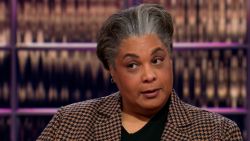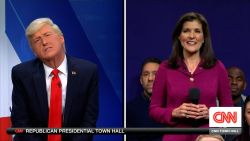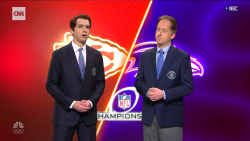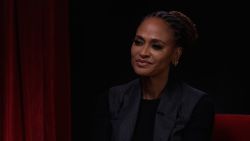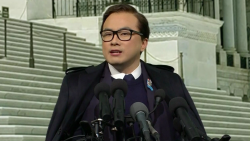Columnist and blogger Andrew Sullivan is leaving New York magazine, his professional home since 2016, he announced Tuesday.
“This will be my last week at New York Magazine,” Sullivan tweeted. “I’m sad because the editors I worked with there are among the finest in the country, and I am immensely grateful to them for vastly improving my work. I’m also proud of the essays and columns I wrote at NYM - some of which will be published in a collection of my writing scheduled for next year.”
Sullivan did not directly state his reason for leaving but said on Twitter that it was “pretty self-evident” and the “broader questions involved” would be discussed in his last column on Friday.
New York editor in chief David Haskell confirmed Sullivan’s resignation in a memo to staff obtained by CNN Business.
Haskell wrote that the decision for Sullivan and the magazine to “part ways was mutual.”
“Andrew and I agreed that his editorial project and the magazine’s, though overlapping in many ways, were no longer the right match for each other,” Haskell said.
Sullivan first came to prominence as editor of The New Republic. Later he founded The Daily Dish, an influential political blog that was published by a number of outlets including Time and The Atlantic before going independent.
But while at The New Republic, Sullivan published excerpts from “The Bell Curve,” a book that argues there are IQ score differentials among racial groups that can be explained by genetics. Even at the time, the book and the excerpts were controversial, but more than 20 years later Sullivan has continued to defend them, sparking more controversy and criticism of himself and New York.
Though neither Haskell nor Sullivan addressed these issues in their public statements, they may have played some role, especially at a time when the media is examining its own issues with diversity, both in its staffs and in its coverage. And Haskell did allude to differences of opinion between himself and much of the magazine’s staff, on the one hand, and Sullivan, who describes himself as conservative, on the other.
“I am trying hard to create in this magazine a civil, respectful, intellectually honest space for political debate,” Haskell said. “I believe there is a way to write from a conservative perspective about some of the most politically charged subjects of American life while still upholding our values. I also think that our magazine in particular has an opportunity to be a place where the liberal project is hashed out, which is to say not only championed but also interrogated.”
Haskell vowed to push for “work that challenges the liberal assumptions of much of our readership. But publishing conservative commentary, or critiques of liberalism and the left, in 2020 is difficult to get right, and thoughtful, well meaning people can come to different conclusions about it: how to weigh the value of plurality of political opinion against other journalist and community values; whether our current publication does in fact create that environment I am trying to foster; what to think of certain writers in particular.”
Sullivan’s resignation came on the same day that Bari Weiss, a controversial opinion columnist for the New York Times, announced her decision to leave the paper. On her way out, Weiss published to her personal website a scathing letter in which she blamed the Times for fostering what she called an “illiberal environment” that she said was “especially heartbreaking.”



